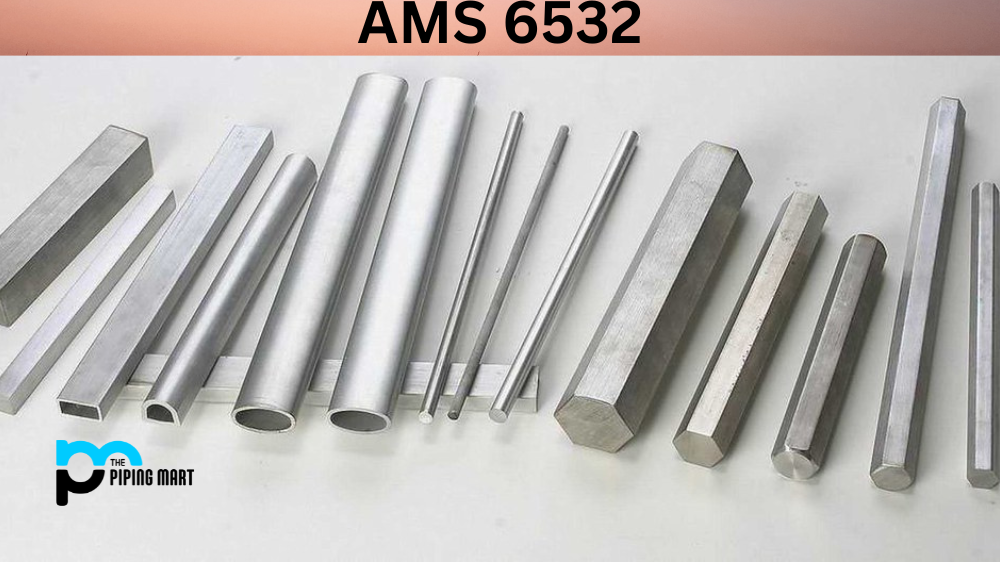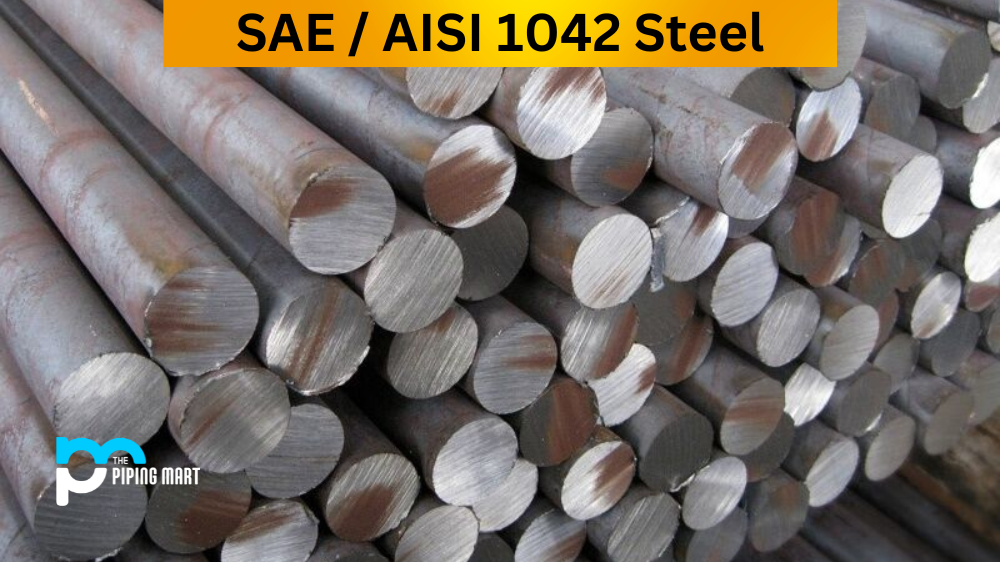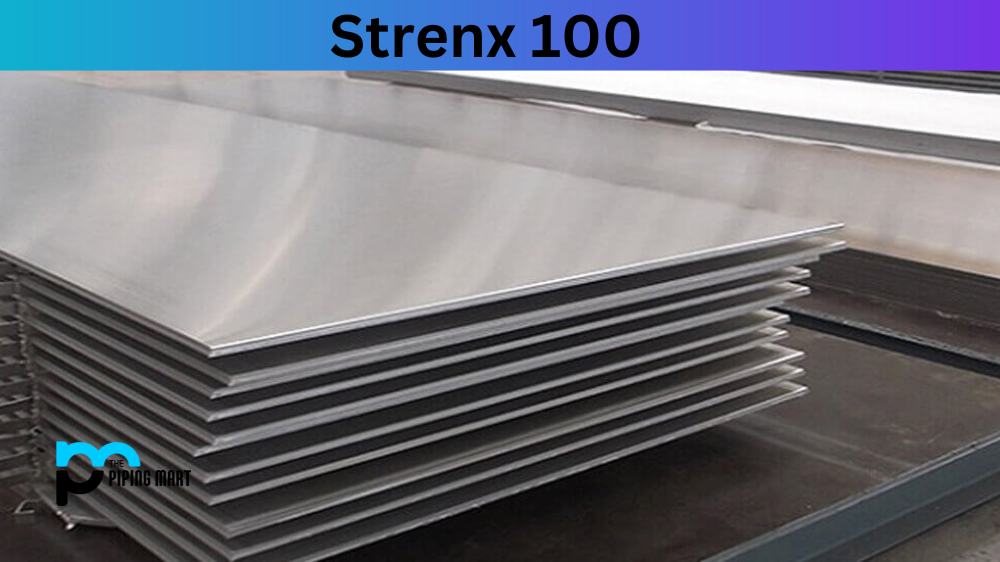Regarding high-strength aerospace alloys, AMS 6532 stands out for its excellent mechanical properties and corrosion resistance. This alloy is also known as “300M” since it contains over 1.5% carbon and 0.5% molybdenum, making it one of the toughest materials in the AMS (Aerospace Materials Specifications) family. This blog post will look closely at AMS 6532’s composition, physical and mechanical properties, heat treatment, and applications.
What is AMS 6532?
AMS 6532 (also known as Aermet 100) metal is a highly specialized alloy designed to withstand extreme temperatures and pressures. This material is commonly used in high-performance engines, turbines, and other aerospace applications where strength and durability are critical. The secret behind the toughness of AMS6532 lies in its unique chemical composition, which includes elements such as chromium, molybdenum, and vanadium. These added metals create a molecular structure that is highly resistant to fatigue, heat, and wear, making it an ideal choice for demanding industrial environments. Whether you’re exploring the ocean’s depths or climbing to the top of the world, AMS6532 is a material you can rely on to get the job done.
AMS 6532 Composition
AMS 6532 is a nickel-chromium-molybdenum steel alloy with high levels of carbon and vanadium. The chemical composition of AMS 6532 also includes manganese, silicon, phosphorus, and sulfur. Its impressive composition gives it high strength, toughness, and wear resistance. Additionally, it has good machinability and can be formed easily.
| AMS 6532 Chemical Composition: | |
|---|---|
| Carbon | 0.23% |
| Nickel | 11.10% |
| Cobalt | 13.40% |
| Chromium | 3.10% |
| Molybdenum | 1.20% |
| Iron | Balance |
AMS 6532 Physical Properties
AMS 6532 has a density of 7.85 grams per cubic centimetre and a melting point of 1500 to 1570 ℃. Its thermal conductivity is around 28 W/mK, and it has a coefficient of thermal expansion of approximately 11.3 μ m/m ℃. The alloy is magnetic and looks slightly dull due to its molybdenum content.
| Property | ||
|---|---|---|
| Density, lb /in3 | .285 | |
| Modulus of Elasticity | 28.2 x 103 ksi | |
| Electrical Resistivity | 70.0° F | 259.0 ohm-cir-mil/ft |
| Critical Temperature | AC1 – 1065° F | AC3 – 1525° F |
| Mean Co of Thermal Expansion | Annealed | Heat Treated |
| 600.0° F | 6.01 x 10-6 in/in/° F | 6.08 x 10-6 in/in/° F |
AMS 6532 Mechanical Properties
AMS 6532 is known for its impressive mechanical properties, especially its high tensile strength, toughness, and excellent fatigue resistance. Its tensile strength ranges between 1930 and 2280 MPa, and it has good ductility. The yield strength of AMS 6532 is around 1600 MPa, and it exhibits high fatigue strength, shear strength, and compressive strength.
| MECHANICAL PROPERTIES | |||||||||
|---|---|---|---|---|---|---|---|---|---|
| PROPERTY | MINIMUM | MAXIMUM | |||||||
| Yield Strength Range (MPa) | 1620 | 1724 | |||||||
| Tensile Strength Range (MPa) | 1931 | 1965 | |||||||
| Elongation (%) | 8.0% | 14.0% | |||||||
| Hardness (HRC) | – | 53 | |||||||
| Modulus of Elasticity (GPa): – | |||||||||
| Machineability General Index: – | |||||||||
AMS 6532 Uses
AMS 6532 is a popular alloy in the aerospace industry for manufacturing highly-stressed components such as landing gears, drive shafts, engine thrust links, and aircraft wing spars. Its high toughness and wear resistance make it perfect for manufacturing gears, bearings, and transmissions. The alloy also produces race car components, military vehicles, and high-performance sporting equipment such as golf clubs and tennis racquets.
AMS 6532 Hardness
AMS 6532 material has excellent hardness, which can be adjusted based on the heat treatment process. After heat treatment, its surface hardness can reach around 60 HRC (Rockwell hardness). The alloy’s internal structure also changes based on the heat treatment, which can impact the material’s mechanical properties.
AMS 6532 Heat Treatment:
Heat treatment is critical in improving AMS 6532’s mechanical properties, such as strength, toughness, and hardness. The quench and temper method is this alloy’s most common heat treatment process. This involves heating the alloy at 900-980 ℃ followed by rapid cooling in oil or water. The resulting microstructure is then tempered between 540-580 degrees Celsius, which improves the toughness and ductility of the material significantly.
Conclusion:
AMS 6532 material is an impressively strong, tough, and versatile alloy with many uses, especially in the aerospace industry. Its hardness, mechanical properties, and corrosion resistance make it a popular choice in manufacturing highly-stressed and high-performance components. We can manipulate the alloy by understanding its composition, physical and mechanical properties, and heat treatment techniques to create the desired properties for various applications.

Pipingmart is a B2B portal that specializes in metal, industrial and piping items. Additionally, we share the latest information and information about materials, products and various types of grades to assist businesses that are involved in this business.




